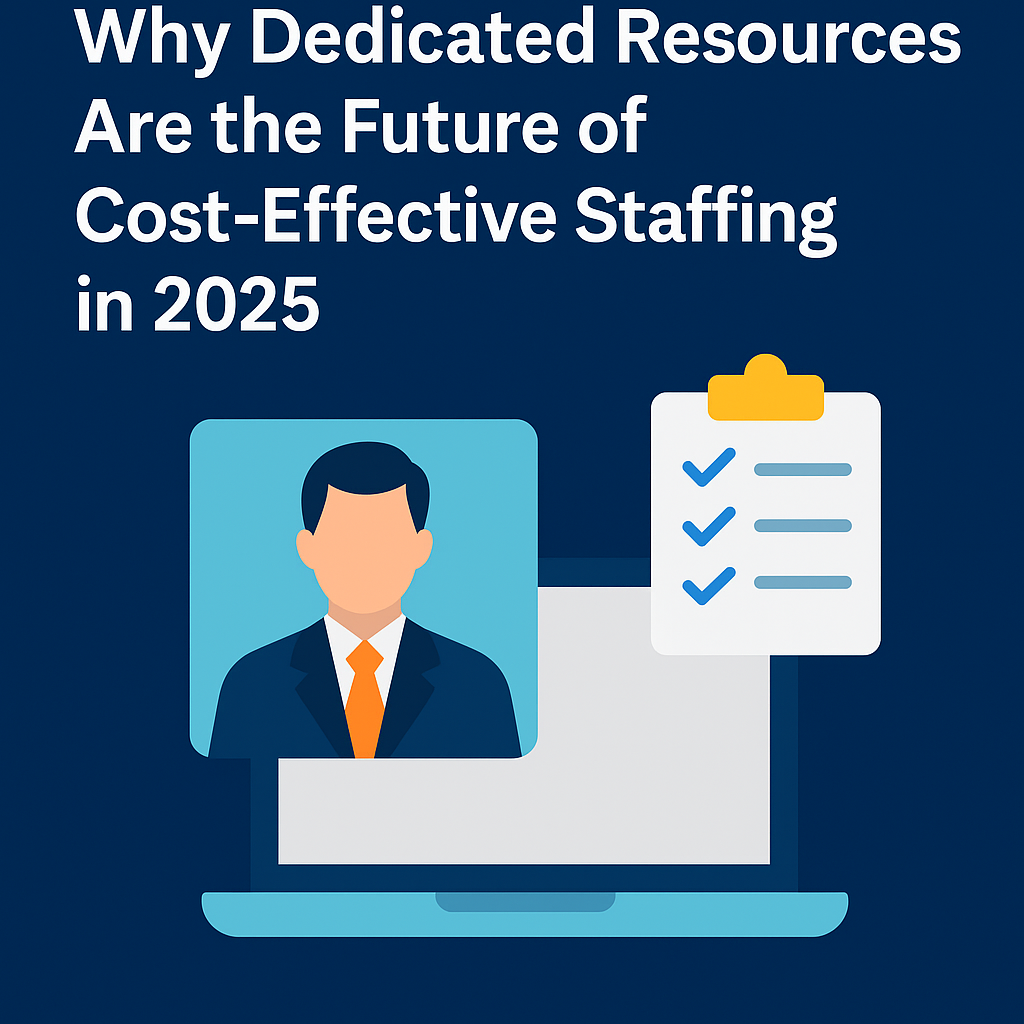In today’s competitive business landscape, organizations are under immense pressure to deliver faster, smarter, and more cost-efficient results. As we step into 2025, staffing strategies are evolving rapidly. One model that has gained significant traction is hiring dedicated resources — skilled professionals working exclusively for your business but managed through a staffing or staff-arranging company. This model is proving to be the future of cost-effective staffing. Here’s why:
1. Unmatched Cost Efficiency
Traditional hiring often involves high recruitment costs, training investments, and long-term financial commitments. Dedicated resources, on the other hand, help companies cut costs by:
- Reducing overhead expenses (infrastructure, benefits, and compliance handled by staffing firms).
- Allowing businesses to pay only for the resources they need, when they need them.
- Eliminating hidden hiring expenses such as job ads, long hiring cycles, and frequent turnovers.
By leveraging this model, businesses gain flexibility to scale up or down without compromising productivity.
2. Access to Specialized Talent Pools
Staffing companies offering dedicated resources maintain a wide network of pre-vetted professionals across industries — from IT developers and digital marketers to finance, HR, and operations experts. With a dedicated resource model, organizations can:
- Tap into niche expertise that may not be easily available locally.
- Reduce time-to-hire for critical projects.
- Ensure continuous delivery by avoiding skill gaps.
This access ensures companies stay ahead of competitors by quickly adapting to evolving market demands.
3. Flexibility with Payroll Models
One of the biggest advantages of dedicated staffing solutions is payroll flexibility. Companies can choose:
- Company Payroll: The resource works directly under your organization’s payroll structure, giving you full control.
- Staffing Partner Payroll: The resource is employed and managed by the staffing company, minimizing your compliance and administrative burdens.
This flexibility makes it easier for businesses of all sizes to maintain cost balance while focusing on core operations.
4. Reduced Compliance Burden
Managing employees directly involves complex legalities — tax deductions, statutory compliance, employee benefits, and labor laws. With dedicated resources from a staffing partner:
- Compliance responsibility is transferred to the staffing firm.
- Risk of penalties and administrative errors is minimized.
- Businesses save time and focus on strategic growth instead of HR formalities.
5. Improved Productivity & Accountability
Unlike freelancers or ad-hoc contractors, dedicated resources are aligned exclusively with your projects. This ensures:
- Higher accountability and loyalty.
- Better understanding of your systems, processes, and culture.
- Long-term value addition instead of one-off task completion.
This level of integration allows businesses to function with the efficiency of in-house teams, without the full-scale financial commitment.
6. Scalability for the Future
As businesses in 2025 embrace digital transformation, the need for rapid scalability is paramount. Dedicated resource staffing empowers organizations to:
- Expand teams instantly for urgent projects.
- Downsize without disruption when projects end.
- Test new business areas with minimal risk.
This agility makes dedicated resources a cornerstone of sustainable growth.
Conclusion
The staffing industry is no longer just about filling vacancies — it’s about delivering strategic workforce solutions. Dedicated resources offer a balance of cost efficiency, flexibility, and expertise that traditional hiring cannot match. For companies aiming to stay competitive in 2025, this staffing model is not just an option — it is the future.


